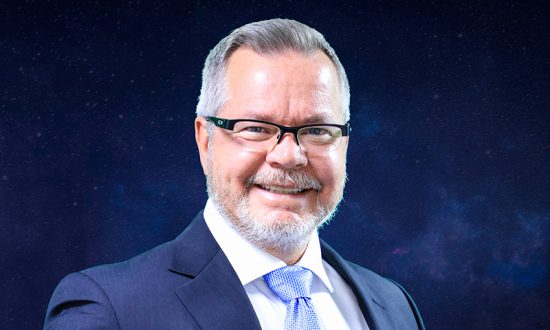Prof Steyn Heckroodt provides a wealth of experience and expertise when engaging with global business leaders. As a Harvard Business School Publishing Moderator, HBR Author, Dean of Academic Affairs, Founder and Chief Thought Leader for Platform for Connected Leadership, he leads a strong team of professionals in shaping the future of companies.
Sad to say, but of all industries, education seems to be the one least able to change and adapt with the times. Why do I say this? Well, compare the classroom of 1920 with the one of today, and you will see very little difference. By comparison, compare the motor vehicle industry of 1920 with that of today, and the improvement is exponential. Even post the pandemic, or in this intra-pandemic period, as students return to campus in some parts of the world, very little change is provided in both content of what is being taught, and delivery thereof.
So, in my view, higher education systems have changed little, other than embracing, to a more or lesser extent, the so-called virtual world and other aspects of digitization in both their delivery, as well as the curriculum content. As I teach for some of the leading international higher education brands globally on executive leadership programmes, as well as MBA programmes, I witness this first-hand.
We have a global shipping supply chain crisis currently due to what is reportedly renewed increased COVID-19 outbreaks at ports across China, yet supply chain curriculums taught at most universities still teaches the same principles in supply chain management. We have been severely and negatively impacted by, for decades, contributing to the strength of China in becoming the preferred choice in manufacturing of goods for most companies globally, centralising global supply from one point of origin, yet we still teach the same principles of scaling in our global strategy MBA curriculums.
Articles and reporting on COVID-19, still places the blame for our inability to balance the importance of lives versus livelihoods, balance the scales, measure the cost, justify the means, guide the philosophical discussion, and lead the future narrative, on COVID-19. But is it really COVID-19 that has caused all of whatever disruption we are experiencing globally, or our inability to manage and lead despite disruption?
In a training scene from the 1980s movie, Rocky III, Rocky Balboa, a fighter, a champion, struggles to regain the world heavyweight title he has lost.
But he has lost his motivation, his energy, his zest for it, his mojo, and his want and need for the title. He has lost his belief…in himself.
During one sparring round, his coach has him cornered and against the ropes with no way out. When pushed to fight back, he responds by saying: “I will do it tomorrow.” Apollo, his former rival turned coach responds angrily, shouting at Rocky: “There is no tomorrow. There is no tomorrow!”, he shouts at the top of his voice.
Similarly, when it comes to Corona, I want to shout at the top of my voice: “There is no normal. Not a back to normal and not a new normal.” Normal implies something that is typical, usual, and predictable. There is nothing usual about Corona, nothing typical and nothing that can be anticipated or predicted. I have no Artificial Intelligence, no official global representative statistics, no secret information. I have only common sense, and this article stems from that. Love me or hate me for it, that is not the choice here. The choice is either to remain trapped in a mechanistic mindset or start practicing living with uncertainty, and getting used to ambiguity and a fluid tomorrow, forever.
It is not the end of the world. It can be an overly exciting new chapter. One in which we finally learn to live with nature, care for it, and put back into it as much as what we take out. One in which we can change the way we treat one another, not through functions of our wallets, but through empathy from our hearts. But for this we need a different approach in higher education, globally. So many systems remain in place, yielding a fragile economic system, stark in its contrast of delivering a world of social inequality, bring it closer to the tipping point of global shame. And, unfortunately, a lot of how the world looks today, is an outcome of what we teach our future leaders through higher education institutions.
The world as we experience it today, is a function of our thinking, it cannot change, unless we change out thinking (Einstein).
So yes, impacted on by the pandemic, that higher education institutions have been, but are they really changing because of that, very little so, I am afraid to say.
What recommendations do I have for improvements though, going forward?
- Making education more affordable for more of us. Why do international students, most times from less developed or poorer countries, still have to subsidise up to two nationals of the country in which the university is hosted? Is the idea to educate, or to let some pay for others?
- Educate professors and other teaching staff on the proper use of hybrid delivery models. Observing some universities deliver during the pandemic has seen appalling quality in content, material development and ability to teach online. And in many instances, horrifically so, no discounts were implemented by higher education institutions for delivering poorer quality.
- Understand individualistic learning styles and stop assessing in a standardised manner, awarding conformism over individualism.
- Move away from examinations to experiential assessments based on levels of understanding, not just knowledge.
- Incorporate more right-brain components in curriculum design, enabling leaders to lead during disruption through innovation and creativity.
- Incorporate more futures thinking into curriculum design, creating a tolerance for ambiguity.
- Material in content, curriculum design, and examples should be revised and changed radically at least every two years.




